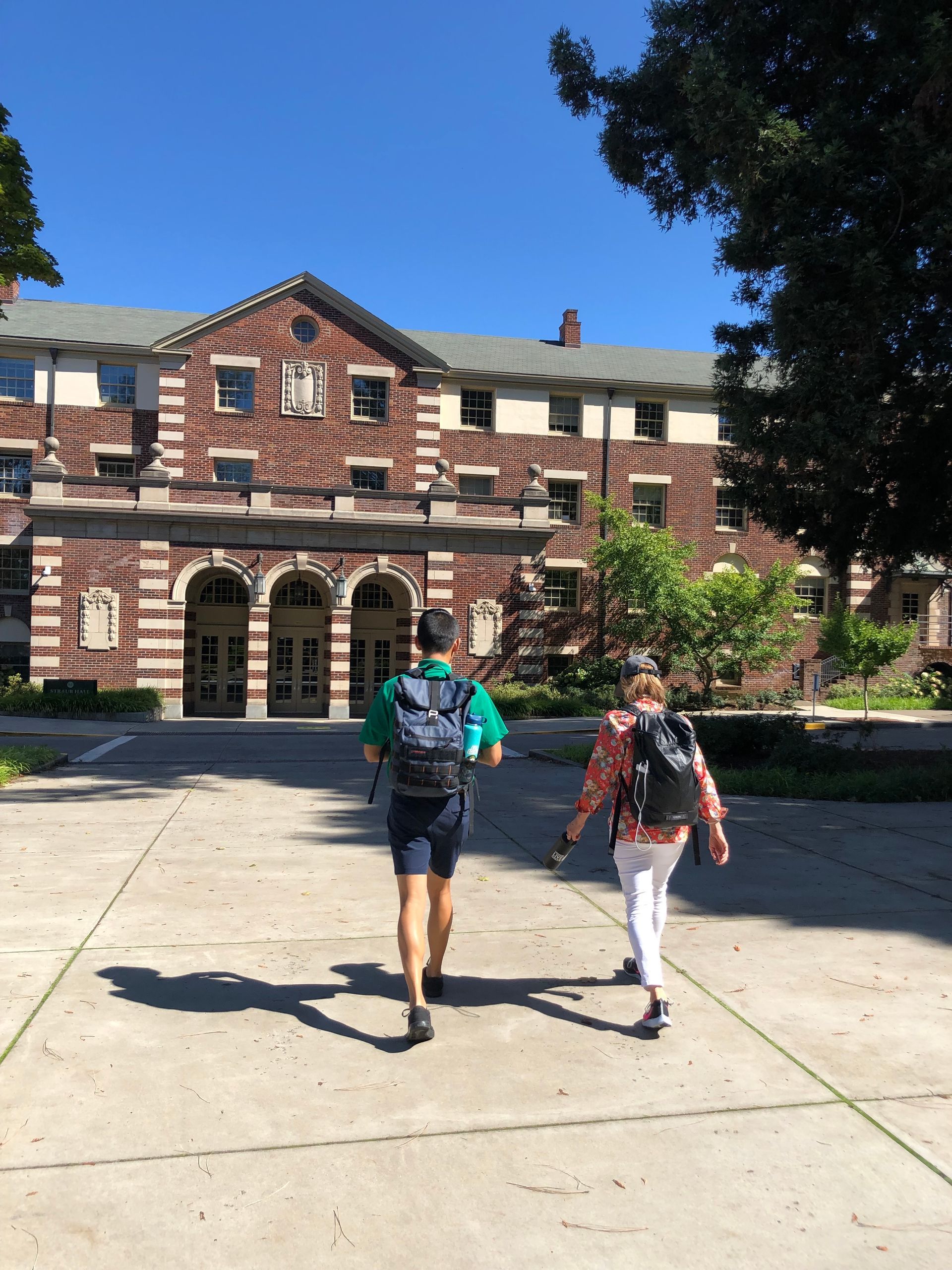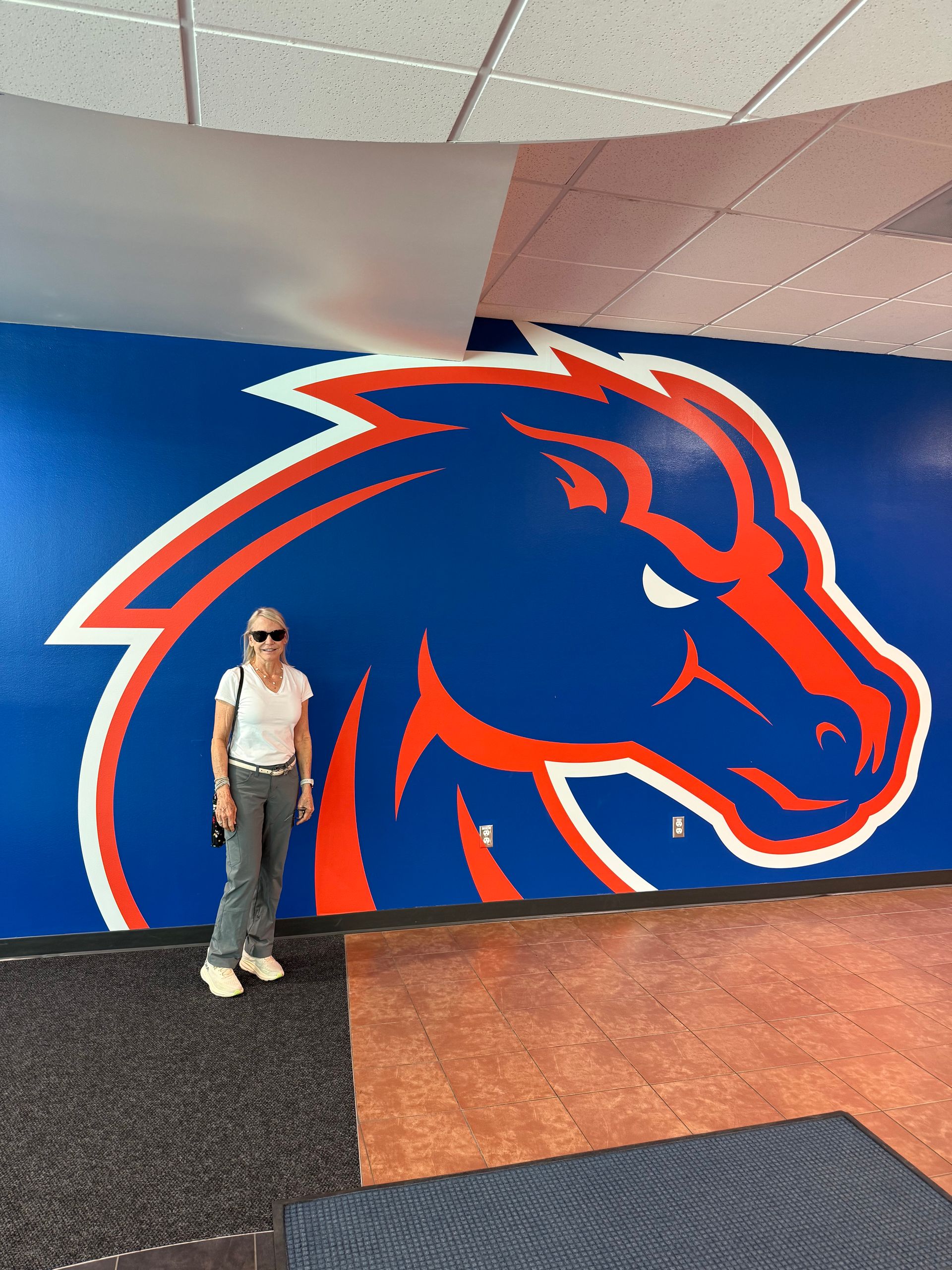Blog

The rock band Foreigner performed at the Del Mar Fairgrounds, San Diego in July, and I was happy to learn of their 15-year support of the arts. Toward the end of the show, the San Diego High School Symphonic Choir came on stage and sang "I Want to Know What Love Is" with the band. Before the show, while eating greasy potato chips, we randomly met one of the choir members' uncles, who proudly told us his nephew was in the choir. It was a reminder to me of how important our school music and art programs are, and we should support them.
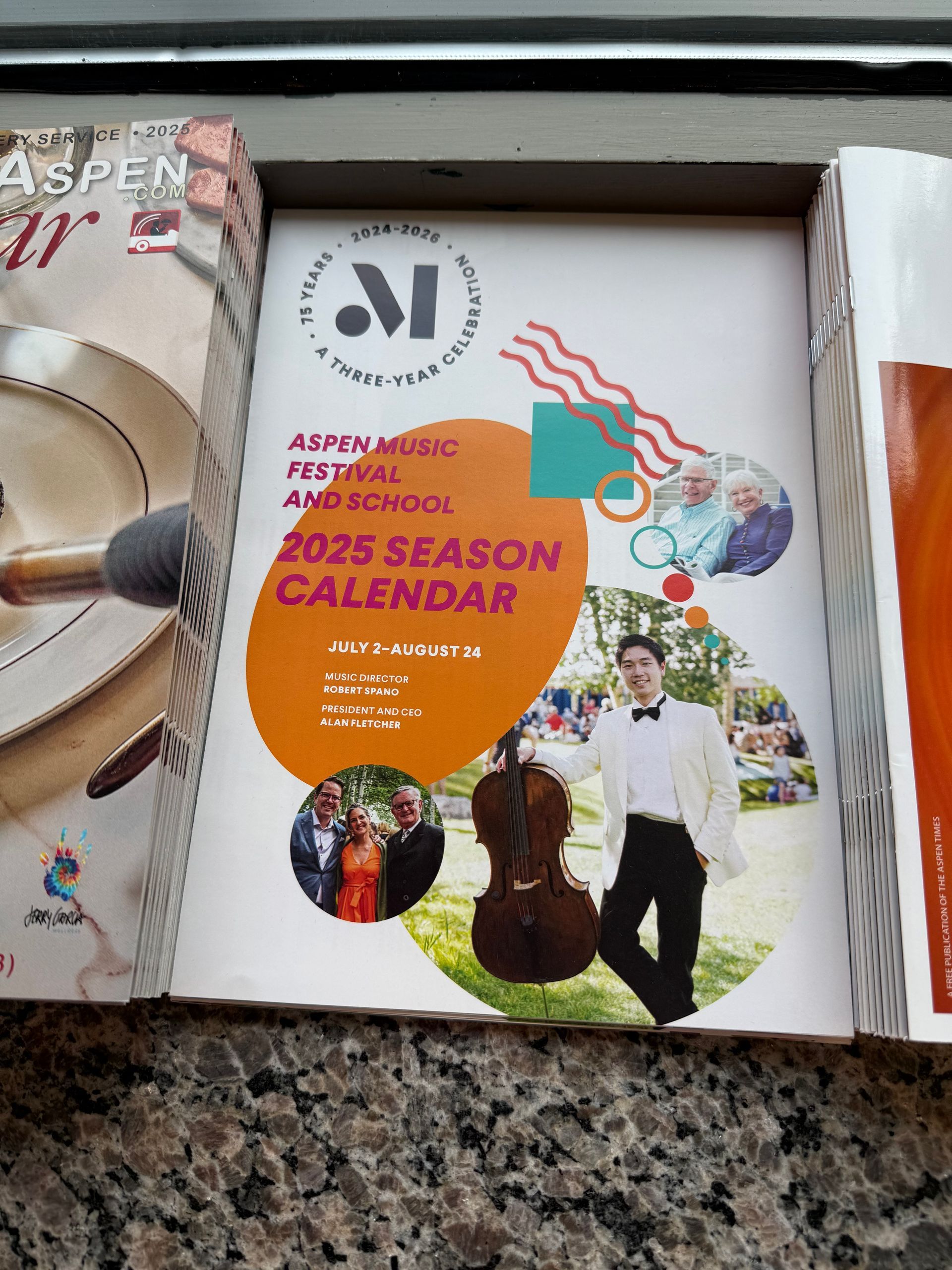
I was in Denver for a family wedding in July and took a detour to Aspen to hike. It was fun to see young musicians from the Aspen Music Festival and School playing their instruments on street corners and in various venues throughout Aspen. Every year, approximately 650 talented students from all over the world are invited to spend eight weeks in Aspen for lessons, coaching, and to play with fellow musicians and known artists. Most are in college. It’s an incredible opportunity to better their skills, and it can help launch their careers. The two I spoke with are attending Peabody Conservatory and the Cleveland Institute for Music. One plays the trombone and the other the violin. Both realize the opportunity, and we’re very grateful for it.

College outcomes have been increasingly hard to predict for at least the past 10 years. Most of the popular colleges have received more applications with each subsequent year, much of the increase due to the ease of applying with online applications. UCLA for example, receive 145,910 undergraduate applications for the incoming class of 2023 and 146,276 for the class of 2024*. Many students have a few favorites and are disappointed when they don't get in. Despite student's and counselor's best efforts, admissions are unpredictable and students should plan for 'Option B' if they aren't offered a spot at their first choice college. After the period of disappointment passes, students should focus on the schools where they got in. Make a spreadsheet with pros/cons of each. Visit as many as your time and budget allow. Tour the department your major is in and ask well thought-out questions. Make an appointment with the financial aid office to ensure you fully understand what the school is offering you. See as much of the campus as possible and the surrounding area. While these steps might not take away all of the disappointment, it will help you make the best decision for you and your family and ultimately result in a positive experience in college. *https://apb.ucla.edu/campus-statistics/admissions
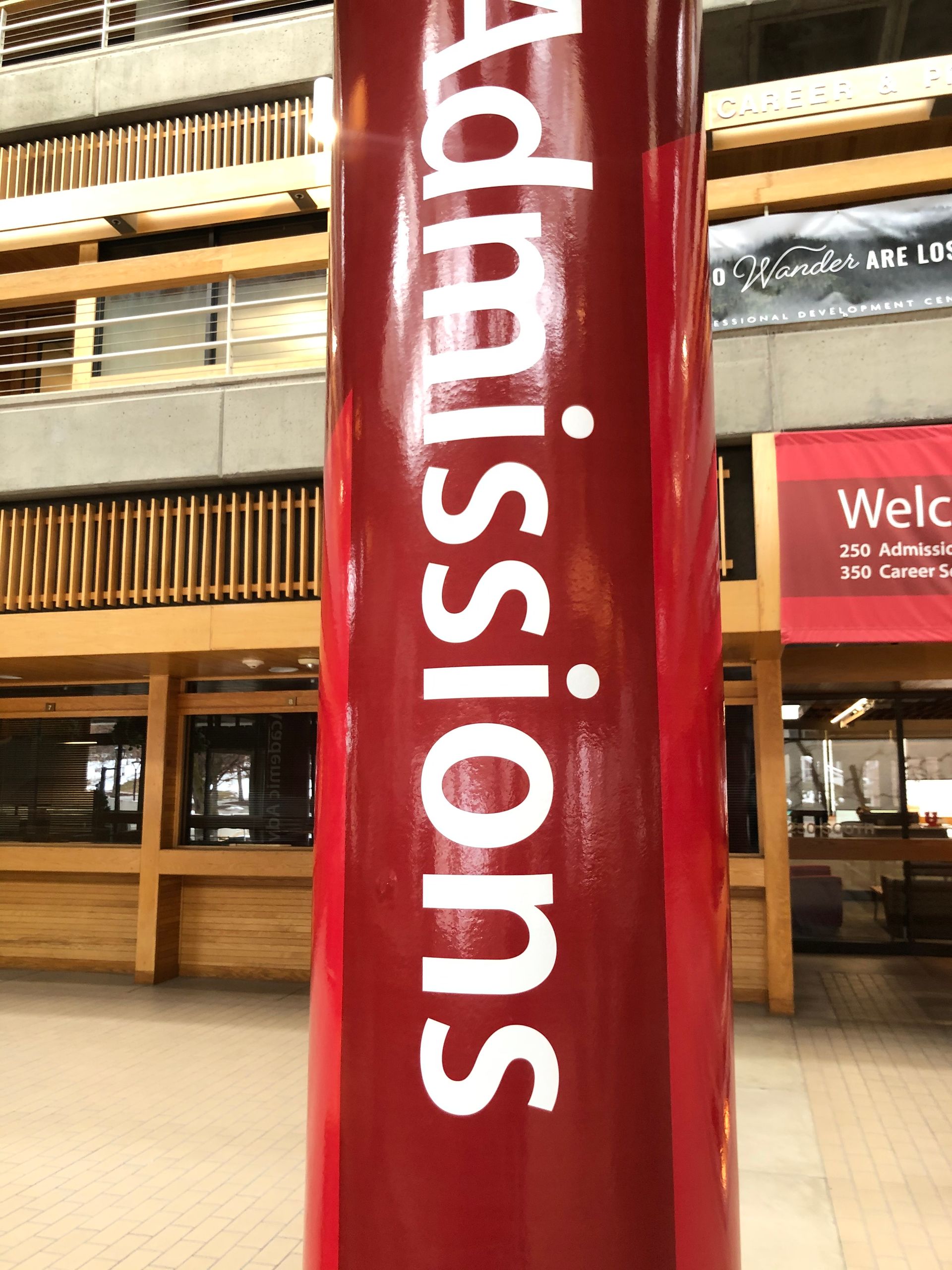
In the past few years, colleges have been using waitlists to manage their enrollment. Determining who will accept their offer for admission is often times unpredictable, so they rely heavily on the waitlist to help. Many of my students contact me asking what they should do. I tell them they should first see what the college requires. Opt-in to remain on the waitlist and if they allow it, send a letter of continued interest. Express that the colleges remains one of their top choices and why. Consider your major and and related club. If they allow for an additional recommendation letter from a teacher, coach or mentor, include it. Contact the admissions office and your specific admissions representative to ask questions. Be respectful of their time. If the colleges considers demonstrated interest, visit the campus when possible. There are no guarantees you will be offered a spot from the waitlist, so you should commit to another school. Sometimes the wait can be well-after the May 1 National College Signing Day, so sit back and wait and hope you will be offered a spot.
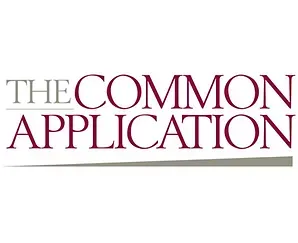
The Common App announced that the prompts for the 2025-2026 application cycle will remain the same and there will be changes to the two additional information questions. The "Community disruption" question will now be a "Challenges and circumstances" question. This is to allow students to included many different experiences. The "Additional information" question maximum word limit for undergraduate students will be 250 words, down from 650. Here is the personal essay questions for the 2025-2026 season. Some students have a background, identity, interest, or talent that is so meaningful they believe their application would be incomplete without it. If this sounds like you, then please share your story. The lessons we take from obstacles we encounter can be fundamental to later success. Recount a time when you faced a challenge, setback, or failure. How did it affect you, and what did you learn from the experience? Reflect on a time when you questioned or challenged a belief or idea. What prompted your thinking? What was the outcome? Reflect on something that someone has done for you that has made you happy or thankful in a surprising way. How has this gratitude affected or motivated you? Discuss an accomplishment, event, or realization that sparked a period of personal growth and a new understanding of yourself or others. Describe a topic, idea, or concept you find so engaging that it makes you lose all track of time. Why does it captivate you? What or who do you turn to when you want to learn more? Share an essay on any topic of your choice. It can be one you've already written, one that responds to a different prompt, or one of your own design. Details can be found here.
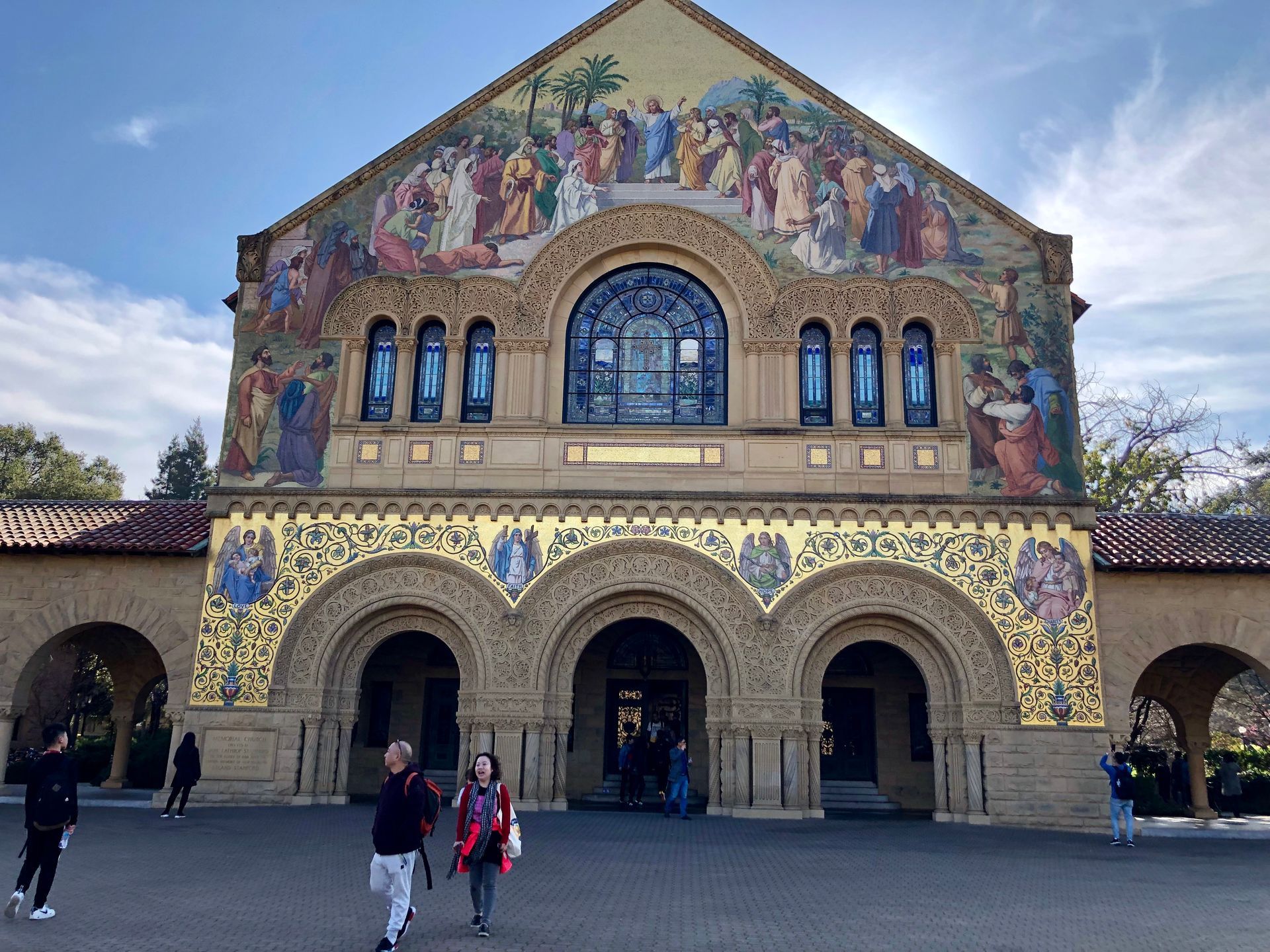
Stanford will once again require the SAT or ACT for undergraduate students applying in the fall of 2025. For students applying this fall 2024, they will remain test-optional. The following is an excerpt from the Stanford Report. Test scores represent only one part of a holistic review of each applicant to the university, for which academic potential is the primary criterion for admission. Performance on standardized tests is an important predictor of academic performance at Stanford, a review by the faculty Committee on Undergraduate Admission and Financial Aid has confirmed. The renewed testing requirement will allow Stanford to consider the fullest array of information in support of each student’s application. This follows announcements from other competitive schools like MIT, Harvard, Yale, University of Texas Austin, and Cal Tech to reinstate the requirement for standardized test scores for admissions. Since the Covid 19 pandemic started in 2020, colleges stopped requiring scores. But, many colleges believe these scores are a predictor of college success.
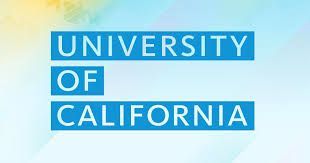
The UC Information Center has a large amount of data including admission for freshman by high school and UC campus. It's interactive so enter your high school to view statistics about the number of students admitted by ethnicity and GPA including average applied, admitted, and enrolled GPA, It also includes transfer student data. https://www.universityofcalifornia.edu/about-us/information-center/admissions-source-school. Here is an admissions summary. https://www.universityofcalifornia.edu/about-us/information-center/freshman-admissions-summary

It's spring and college decisions are rolling in. You were just waitlisted by another school. You have worked hard for 4+ years spending countless hours on homework, extracurricular activities, volunteering and researching the perfect college list. So what went wrong? What could you have done differently? In most cases the answer is nothing. Colleges are big business and meeting enrollment numbers is vital to their success. It's a calculated risk that happens every year beginning in the fall when students begin submitting their applications. Colleges have to decide which students they think will accept their offer of admission. They review your transcript and application and anything else you may have sent in. They also look at data from previous years about graduating seniors which may determine how many spots they have in particular departments. How does the waitlist work? Students are asked to "opt in' to stay on the waitlist. Some college allow for a letter of continued interest (LOCI) or a letter of recommendation. In the LOCI students should share any new activities, honors, awards, courses, and grades that weren't included in the initial application. They should do what the college allows and not try to circumvent the process by barraging admissions with phone calls and emails. They should also commit to another school that accepted them as waitlists are unpredictable and often it takes weeks or months for admissions to notify them. Waitlists are frustrating but a necessary part of college admissions given the growing number of applications for a limited number of spots at top universities.

The Common App has announced its prompts for 2024-2025. They will remain the same as last year. Some students have a background, identity, interest, or talent that is so meaningful they believe their application would be incomplete without it. If this sounds like you, then please share your story. The lessons we take from obstacles we encounter can be fundamental to later success. Recount a time when you faced a challenge, setback, or failure. How did it affect you, and what did you learn from the experience? Reflect on a time when you questioned or challenged a belief or idea. What prompted your thinking? What was the outcome? Reflect on something that someone has done for you that has made you happy or thankful in a surprising way. How has this gratitude affected or motivated you? Discuss an accomplishment, event, or realization that sparked a period of personal growth and a new understanding of yourself or others. Describe a topic, idea, or concept you find so engaging that it makes you lose all track of time. Why does it captivate you? What or who do you turn to when you want to learn more? Share an essay on any topic of your choice. It can be one you've already written, one that responds to a different prompt, or one of your own design. We will retain the optional community disruption question within the Writing section. Over the next year, we'll consult with our member, counselor, and student advisory committees to ensure we gather diverse perspectives and make informed decisions.
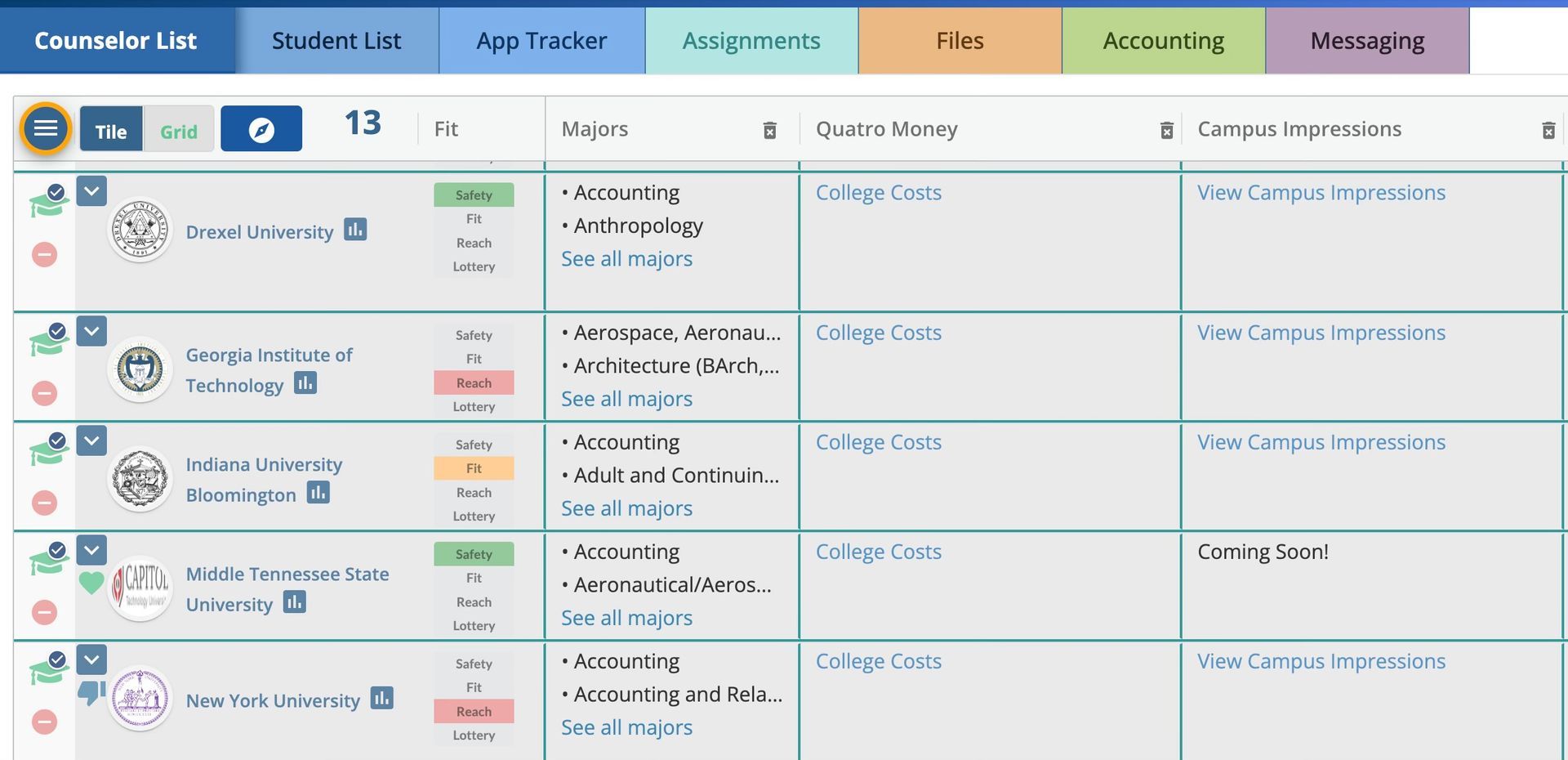
The competitive state of college admissions has made it more important than ever to build a balanced list of colleges. Start by knowing what you want to pay for college. This can be different than what you can afford. Do you want to stay in state or travel far from home? If you want to stay closer to home, look at state colleges as these will be most affordable. Be sure you can get the courses you need to graduate in four years as going a 5th year will add to your debt. Look at private colleges that will give local students merit aid. Consider colleges that you may not have heard of. Most students apply to same top schools because these are the names they hear. If you want to go out of state, look at the average merit aid awarded to out of state students. Collegedata.com is a good place to start. If you know what you want to major in, you can start by doing a simple Google search. Know that these searches often show only the most competitive colleges so refine your search criteria by adding "Affordable colleges for B students" or "Best in-state colleges for biology". CollegeXpress.com can help refine your search. Most importantly, take rigorous courses and work hard to keep your grades up as colleges know that these are two things that help determine how well you will do in college.

Due to the delayed release of the new simplified FAFSA this year, all University of California and California State University campuses have extended the deadline to commit to a college from the traditional May 1 deadline to May 15. This gives families two additional weeks to consider their financial aid offer. The transfer deadlines is still June 1.
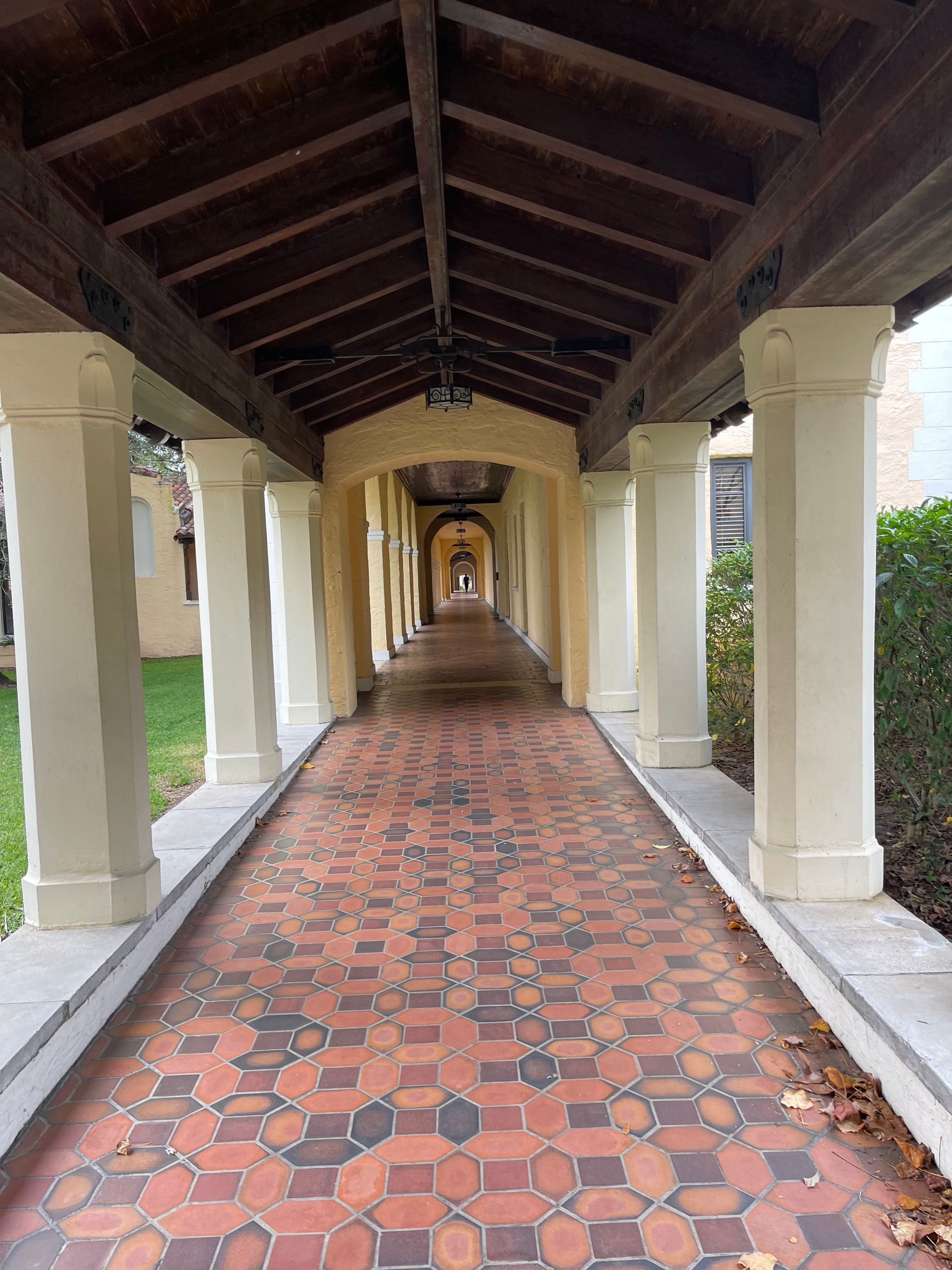
Seniors, while you are waiting to hear from colleges, it's important to continue showing some interest in the college. You can do this by stating why you are a perfect fit for the major you chose or mentioning extracurricular activities that support your interests. Some colleges ask for a letter of continued interest if you have been deferred from the early action pool to the regular pool. Be sure to fill it out. If you have any new and compelling information like a significant community service engagement, a school or research project you completed, or a change in family circumstances, let the college know. Check to see what their policy is for reporting new information. Some want a form, others may want an email. Keeping your grades up is also important and most colleges look senior year grades.

Fall means the start of college for many students. Choosing the right college takes research and hard work when applying, but some of it takes place as soon as you walk on campus. Here are tips to making the next four years the best they can be. Attend the information sessions for admitted students. These orientation programs have helpful information about how to navigate the next four years. You will learn what is available and where to find it. You will be with other students your age and may meet someone who will become a lifelong friend. Get involved by joining clubs and organizations. This is a good way to feel a part of something and to give back if it's a service organization. If there is a Greek system, consider attending some of the events to see if it's for you. Make an appointment with an academic advisor to help choose courses. Seek out the the writing and learning lab for free tools that will help you with papers and to get help with homework. Consider applying to the Honors College if not freshman year, during sophomore year. You may get early registration for classes and first pick of housing. Explore surrounding areas for restaurants, shops, and sporting events. Getting involved in a few things but not too many that you become stressed out can help make your college experience a happy one.

Many high schools offer Dual Enrollment courses from a local community college. They are usually taught at the high school and can appear on the student's high school transcript. I get asked often how the University of California calculates these courses into the weighted GPA since one semester of a college course meets one year of the high school requirement. The UC states this: Although many semester long college courses will satisfy a full year or more of an A-G requirement, the UC weights the college course as follows: Only UC transferable courses worth at least three semesters or four quarter units will earn an extra point in the GPA for grades of an A, B, or C; and one college course earns one grade which means only one additional point in the GPA calculation. I advise my students that it's still better to take the higher level course even if they don't get the bump in their GPA. It's always better to challenge themselves than as colleges look favorably on this.

May 1 was National College Decision Day for college-bound students across the country. These are just some of the colleges my students gained acceptance to this year: Some of the private colleges my students received a yes from are New York University, Columbia University, University of Southern California, Chapman University, Loyola Marymount, Pepperdine University, Fordham University, Hofstra University, Emerson College, The American University Paris, University of Washington Seattle, University of San Diego, Occidental College, and many more. All of the University of California schools including Berkeley, Los Angeles, Santa Barbara, Irvine, Davis, San Diego, Santa Cruz, and Riverside. All of the California State Schools including San Diego State and Cal Poly San Luis Obispo, I am proud of their accomplishments and look forward to helping a class of rising seniors.

For students who may not have gotten in to the college of their dreams, some colleges are still accepting applications. A few of these include California Lutheran, St. Mary's College in Moraga, CA, Whittier College, Portland State, Goucher College in Baltimore, Michigan State University, St. John's College in NYC, University of Endinburgh in Scotland. These colleges may be off of students' radar, but worth taking a look at . They could be a state college like Penn State but one of their less known locations. If there is a college you are interested in call them and ask if they will accept a late application. This will not apply to the most popular colleges, however. With a little research you can still achieve your goal of attending a four year college in fall 2023.

Seniors, if you have college applications due in January, check with your high school counseling office this week to make sure transcripts have been sent to the colleges that require official transcripts. If you are having official SAT or ACT scores sent from the agencies, be sure to do it as soon as possible to allow plenty of time for the scores to be received by the colleges as some have hard deadlines. Most college close for the entire holiday break. Go to the college's website to make sure you are doing everything they require to apply so you don't miss a deadline. Use the time off of school to work on your essays and to study for any January finals.

Jeanette Wright 5:03 PM (29 minutes ago. The summer before 12th grade can be a great opportunity to prepare yourself for the upcoming academic year. Here are a few ideas. Review your notes and materials from the previous year and try to identify any areas where you struggled or could use some extra practice. You can also review the syllabus for the upcoming year to get a head start. If you plan on taking standardized tests such as the SAT or ACT, consider using your summer to study for them. There are plenty of resources available online or through local test prep programs. Volunteering can be a great way to give back to your community and also gain experience in areas that interest you. Consider volunteering at a local organization that aligns with your passions. Use your summer to explore a hobby or passion that you haven't had time for during the school year. Whether it's painting, photography, or learning a new language, use your free time to develop your skills and interests. Get A summer job can not only help you earn some extra cash but also teach you valuable skills such as responsibility, time management, and teamwork. Attend a summer program: Look into summer programs or camps that focus on your academic interests or passions. This can be a great way to gain new skills, meet new people, and have fun. The summer before 12th grade is a time to recharge before the school year starts. Make sure to take time for self-care, spending time with friends and family, and enjoying your summer break. The body content of your post goes here. To edit this text, click on it and delete this default text and start typing your own or paste your own from a different source.

The University of Washington in Seattle announced on July 21 it will be accepting applications for the class of fall 2023 via the Common App. In the past, they have used an alternate application platform with one early deadline—Nov. 15. There are over 900 colleges that use the Common App. As a counselor, I am relieved that my students don't have to fill out yet another application. The Common App will launch its application for fall 2023 on August 1, 2022.
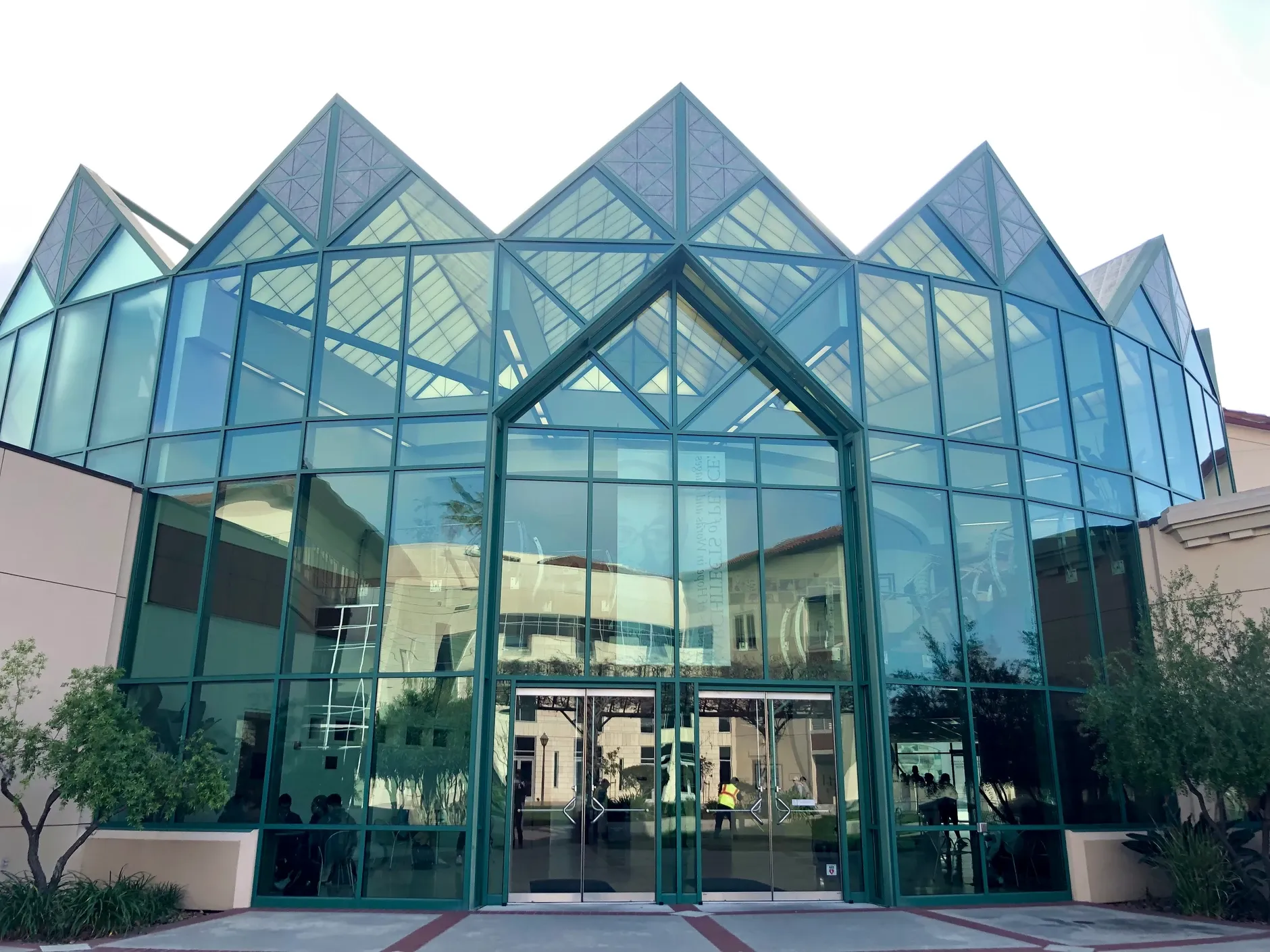
The Common App opens on August 1. One of the most frequently asked questions I get from my students is what GPA to report. Here is the answer from the Common App people. FAQs How do students report GPA scale in the application? The GPA scale appears as a drop down menu in the application, with options of 4 through 20 and 100. If your school doesn’t calculate a cumulative numerical GPA, or if it uses a GPA scale that is different than the options available, select “N/A”. This information is not required in the application. My school calculates both weighted and unweighted GPAs. Which should students select? In this case, students should report the weighted value. Who can I contact if I have questions? For more information, visit our Solutions Center at recsupport.commonapp.org or email us at sfsupport@commonapp.net .
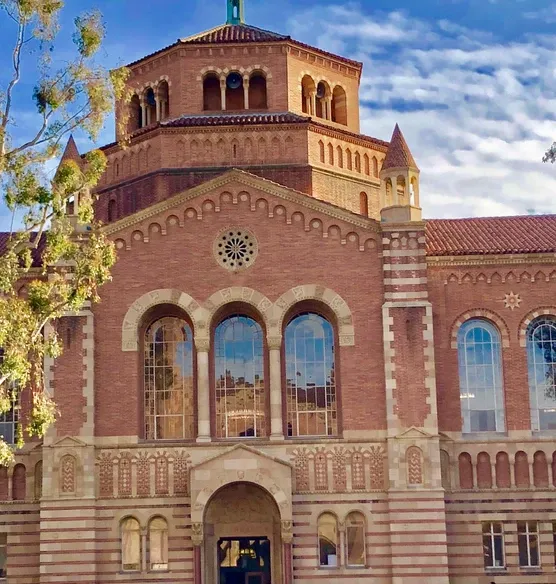
As it becomes more difficult to gain admission to California State (CSU) or University of California (UC) schools, it becomes that much more important to apply to other colleges. Students should look at private colleges both in and outside of California that will give them some merit aid. They should consider out-of-state schools, especially those that are part of the Western Undergraduate Exchange (WUE). They offer scholarships (some only in certain majors) that allow them to go to an out-of-state school for 150% of the in-state tuition. The cost can be close to the cost of a UC. I encourage my students to begin their college search by looking at the cost. Why spend time and money applying to a school that you can't afford? Families often times don't realize how student loans affect their ability to buy a car, condo, or live in a desirable area. That debt does not go away until it is paid off. I tell my students to research colleges thoroughly.
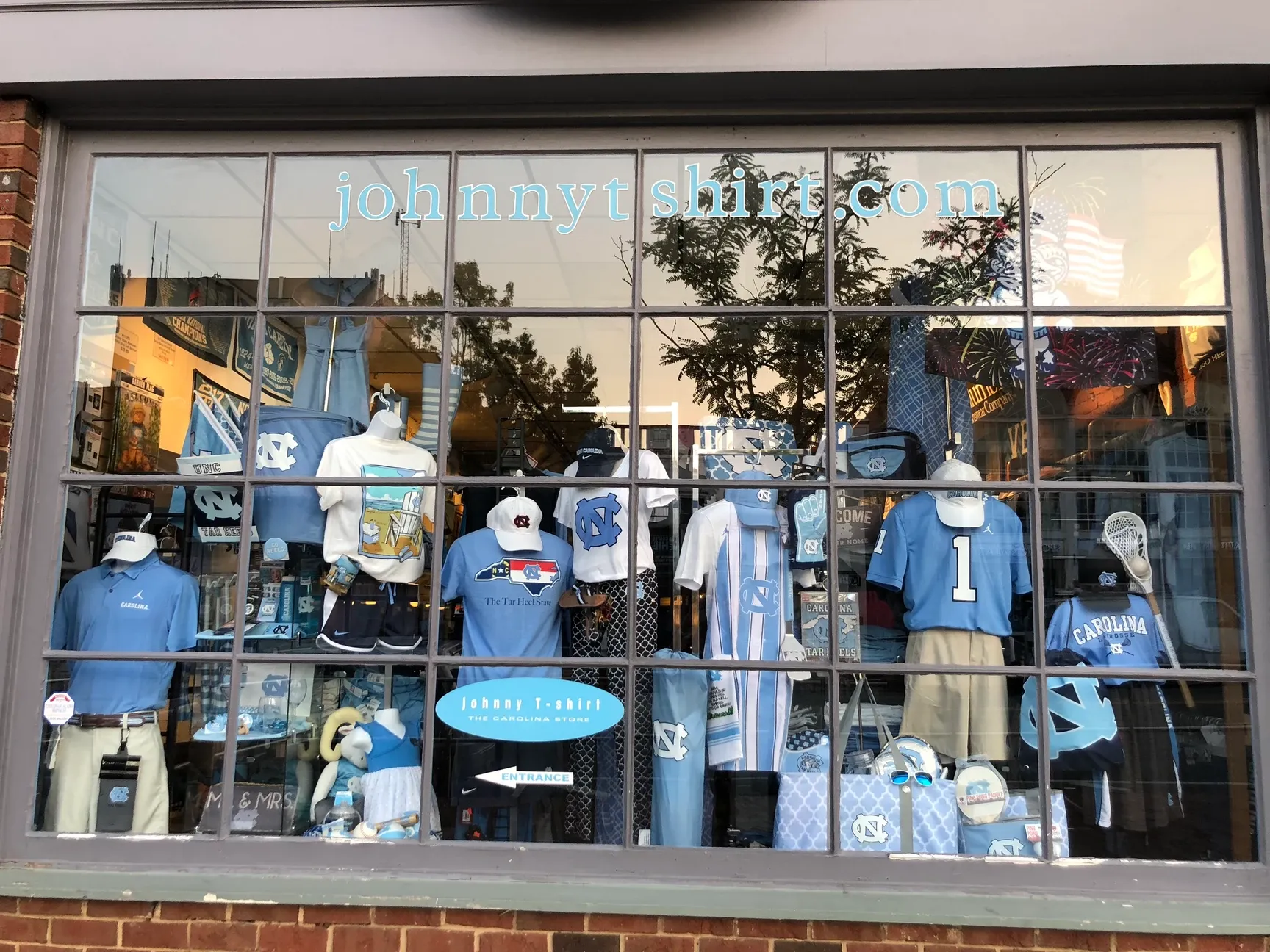
If you are a high school freshman or sophomore thinking about how to best prepare for college, know that grades continue to be the number one factor. You should also begin to think about what you are interested in studying. Some high schools have pathways in different subjects like biomedical or engineering and computer science. Regardless of what you think you might want to study, find an activity that you enjoy doing and where you can make a difference. Colleges are looking for changemakers and consistent, in-depth participation in a couple of things. Sophomores should start thinking about what colleges they will apply to. It takes research and getting to know your likes and dislikes. The sooner you start to think about these things, the easier the college search will become.
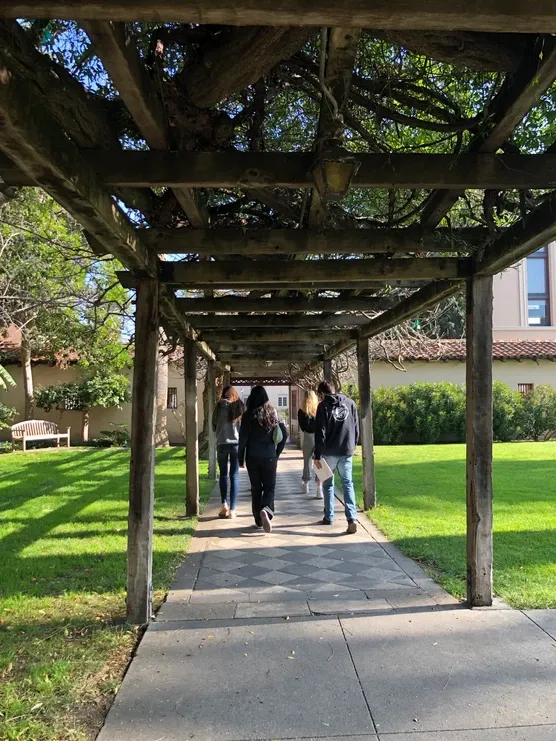
Visiting a college has been a way for students to show they are interested in them. So how can they show their interest now with Covid 19 resulting in campuses canceling their in person tours? Here are a few suggestions: Ask the college for an alumni interview. Ask to speak with a current student. Write to their admissions representative with questions not found on their website. Sign up to take a virtual tour and then take it.

